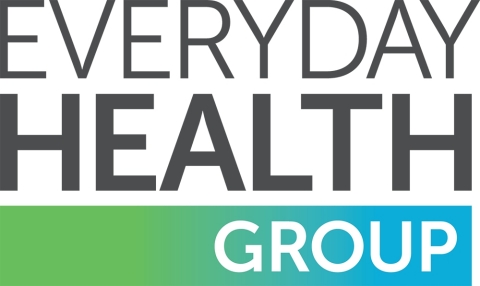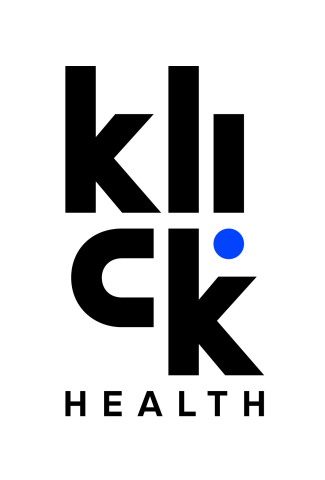NEW YORK & TORONTO--(BUSINESS WIRE)--Patients don’t just want a doctor with a good bedside manner, according to new Everyday Health and Klick Health research exploring the growth of telemedicine and its increasing popularity with patients who continue to have healthcare needs, even in the midst of a pandemic and a socially distanced world. The findings also suggest that even though widespread adoption of telemedicine has been fueled by the public health crisis, an increasing number of consumers expect it to stick around.
In the COVID-19 Wave II Study, almost half of all people surveyed said they prefer healthcare professionals who offer phone or web-conference-based consultations even though only 28 percent of them admitted to personally using telemedicine before COVID-19. The study polled American adults, the majority of whom said they have a health condition, such as an anxiety disorder, asthma, clinical depression, or Type 2 diabetes, and are familiar with telemedicine services.
“COVID-19 is certainly a tipping point for the acceleration of telemedicine and it will become routine for the evolved patient journey,” stated Nan-Kirsten Forte, MS, Executive Vice President and General Manager of Everyday Health Consumer. “This survey data, combined with other studies examining the year-on-year growth of telemedicine, indicate that it will become even more than a substitution for in-person doctor visits; it will become additive to clinical care, in particular, for managing chronic conditions.”
People look most to telemedicine for renewing prescriptions (45%), followed closely behind by getting regular check-ups (42%), looking into new conditions or symptoms (27%), and discussing lab test results with their physicians (25%).
“Patients’ needs don’t stop for a pandemic; they still need access to the prescriptions, treatments, and care that they have come to expect from their doctor,” said Klick Health Senior Vice President of Media Dave Leitner. “Telemedicine plays a critical part in helping patients navigate through this new reality and these findings reinforce that the healthcare industry’s focus on the patient journey is as important as ever.”
Treating pre-existing versus new conditions
Interestingly, less than a fifth of those surveyed said they would use telemedicine to consult with a new doctor or get new prescriptions, and even fewer look to it to get referrals for lab tests (14%) or medical specialists (12%) -- reinforcing that telemedicine is being utilized more for treating pre-existing health conditions.
The most vocal telemedicine supporters are between 25 and 65 years old and are evenly made up of those who both have and have not been diagnosed with a health condition. Seventy-one percent of respondents in this age group expect telemedicine to grow due to COVID-19 compared to the 51% who predicted the trend a month earlier during the early stages of the outbreak.
Of those with a pre-existing condition, more patients with post-traumatic stress disorder, chronic migraine, or asthma said they used telemedicine before COVID-19 than those with an anxiety disorder or Type 2 diabetes, and they expect it to grow in popularity.
Concern for young adults
The survey also uncovered some worrisome trends for young adults. More than any other cohort, 95% of 18-24 year olds said they were concerned about their mental health, experiencing increased anxiety, despair and loneliness, in addition to lower levels of resilience, in the face of COVID-19. Yet, this group ranked lowest in their familiarity with telemedicine and their likelihood to engage healthcare professionals who provide telemedicine post-pandemic.
Survey methodology: An online study was conducted between April 24 and May 5, 2020, distributed to the Everydayhealth.com audience and completed by 2,398 randomly selected U.S. residents, aged 18+. The margin of error is +/- 1.69%. (Statistical significance is reported at the 90% confidence level.) Discrepancies in or between totals are due to rounding.
About the Everyday Health Group
The Everyday Health Group (EHG) is a recognized leader in patient and provider education attracting an engaged audience of over 56 million U.S. health consumers and over 830,000 U.S. practicing physicians and clinicians to its premier health and wellness digital properties. EHG combines social listening data and analytics expertise to deliver highly personalized healthcare consumer content and effective patient engagement solutions. EHG's vision is to drive better clinical and health outcomes through decision-making informed by highly relevant data and analytics. Healthcare professionals and consumers are empowered with trusted content and services through the Everyday Health Group's flagship brands including Everyday Health®, What to Expect®, BabyCenter®, MedPage Today®, Health eCareers®, PRIME® Education, Castle Connolly Top Doctors®, and our exclusive partnership with Mayo Clinic® and The Mayo Clinic® Diet. The Everyday Health Group is a division of J2 Global Inc. (NASDAQ:JCOM) and is headquartered in New York City. For more information, go to www.everydayhealthgroup.com.
About Klick Health
Klick Health is the world’s largest independent commercialization partner for life sciences. For over two decades, Klick has been laser focused on developing, launching, and supporting life sciences brands to maximize their full market potential. Klick has been named Agency of the Year six times over the last eight years by the industry’s leading publications. The Klick group of companies—Klick Health and Sensei Labs—is an ecosystem of brilliant minds working to maximize the full potential of their people and clients. Established in 1997, Klick has teams in New York, Philadelphia, Toronto, and across North America. Klick has consistently been named a Best Managed Company and Great Place to Work. In the last year, the company was recognized with 11 Best Workplace awards, including Best Workplaces for Women, Best Workplace for Inclusion, Employee-Recommended Workplaces, and Most Admired Corporate Cultures. For more information on Klick, go to klick.com.






